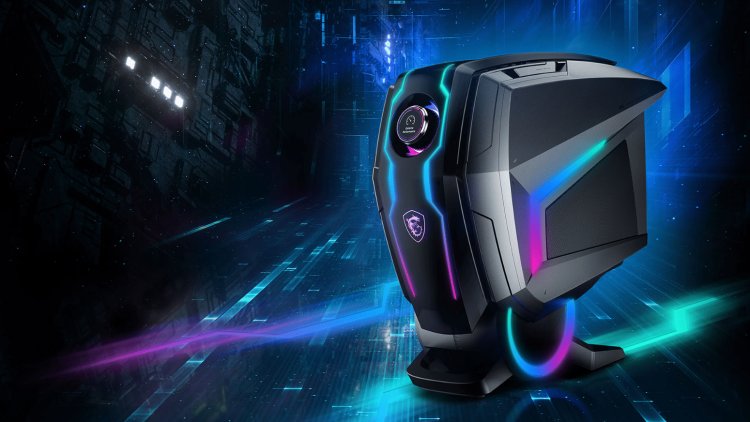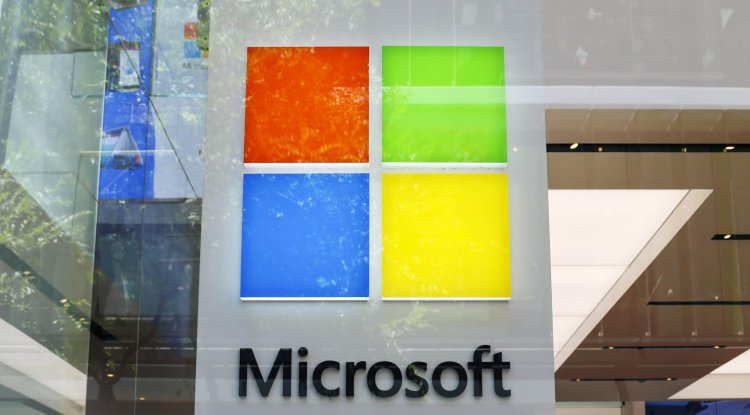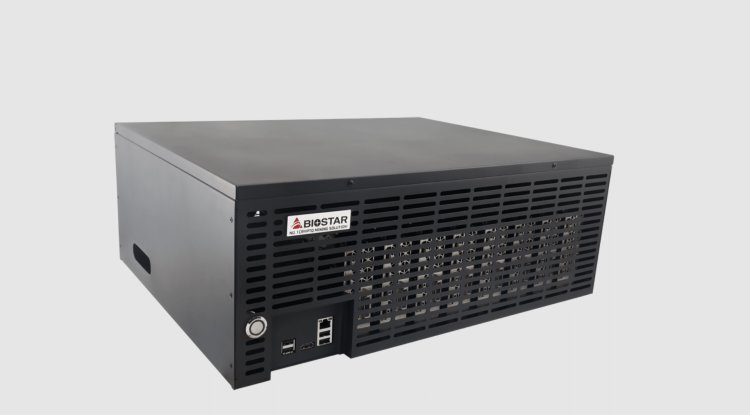MSI MEG Aegis Ti5 12th Review

The MSI MEG Aegis Ti5 12th has been updated with the latest Intel Alder Lake CPUs, which are the best on the market today, in order to maintain its dominance in the gaming desktop tower sector.
More precisely, we found a 12900K, which, when combined with an Nvidia RTX 3090 graphics card and 128 GB of DDR5 RAM, will be an ideal setup, particularly for creators and designers. We'll see what new functionality it adds at the design and component levels, and we'll see it in action, of course.
Despite having an upper handle, the rear region of the MSI MEG Aegis Ti5 12th is rather large and easy to access for the user. A 120mm fan has been installed in air extraction mode as an excellent desktop chassis.
Next to it is the motherboard, which is vertical, as opposed to the horizontal position of a typical ATX box, and on it is the graphics card, as well as the power supply, which is much more hidden in the lower region.
The motherboard port panel features:
- 1x USB 3.2 Gen2 Type-C
- 3x USB 3.2 Gen2 Type-A (red)
- 2x USB2.0
- 1xPS/2
- 1x HDMI 2.0 port
- 2xRJ45LAN
- 1x Optical S/PDIF audio output
- 5x 3.5mm jack
While the graphics card will have the typical:
- 1x HDMI 2.1
- 3x DisplayPort 1.4
A count that, in our opinion, is insufficient for the size of a PC costing more than $6,000. This board lacks Thunderbolt ports, which the Aegis 10th had, as well as USB-C Gen2x2 and a glaring limitation of only 6 USB ports when practically every Z690 board has 10 or 12. At least the sound panel is complete, and there are dual LAN network connections, albeit with limited capacity.
In terms of network connectivity, we have an Intel I225-V-chip with 2.5 Gbps and another Intel I219-V-chip with 1 Gbps. The wireless configuration is at its finest with an Intel Wi-Fi 6 AX211 card, the most recent version at the time, which supports Wi-Fi 6E with frequencies of 2.4, 5, and 6 GHz and transmission rates of up to 2.4 Gbps. Bluetooth 5.2 is included. How could it be any other way?
Intel Core i9-12900K processor The blue brand's flagship supplied 8 P-core at 5.2 GHz maximum Turbo frequency and 8 E-core at 3.9 GHz Turbo frequency. They form 24 threads in total to fly any program or game on its 10nm Alder Lake architecture.
The best CPU in terms of performance under Windows 11 right now, having already demonstrated how well it performs in multitasking, multimedia, and graphic design tools.
In this instance, it will be configured to deliver 4.4 GHz in P-core and 3.3 GHz in E-core in all cores at the same time, with a maximum boost of 5.2 GHz, thus there are no BIOS constraints other than overclocking.
It is complemented by an MSI RTX 3090 Ventus graphics card, which has a triple-fan heatsink and dual 8-pin power connections and uses the base frequency closest to the reference model. Its GPU contains 10496 CUDA cores, 328 3rd Gen Tensor cores, and 82 2nd Gen RT cores, operating at 1725 MHz in Boost mode and a TDP of 350W.
It includes a 24 GB GDDR6X VRAM memory with a 19.5 Gbps effective speed that operates on a 384-bit bus with a bandwidth of 936 GB/s. This card is currently the second most powerful, trailing only the RTX 3090 Ti, and is intended for rendering and design activities, though it will outperform it in gaming performance.
The RAM memory configuration will simply be the utmost supported, which is 128 GB of capacity with DDR5 modules operating at 4800 MHz. We will never run out of room, albeit the price will rise significantly due to the high cost of the elements.
A 2 TB Western Digital PC SN810 Black Series Gen4x4 SSD with 7000 MB/S read transfers rounds out the storage capacity. In addition, we have a 3 TB Toshiba SATA HDD in 3.5" format as an extension.
Because there are no models available with a Z690 chipset in this format, all of the hardware will be connected to a Micro ATX motherboard designed specifically for this equipment. It will provide all of the brand's quality guarantees for hardware as amazing as this one, but it has some flaws you don't like, such as the lack of heatsinks in its 9+1 phase power supply region.
At the very least, it contains four SATA ports, two M.2 Gen4x4 slots, a Wi-Fi card socket, and a dual PCIe slot. The sound card is also top-tier, with a Realtek ALC1220P codec.
Finally, the power supply in charge of bringing the MSI MEG Aegis Ti5 12th to life has 850W more capacity than the previous generation while preserving the modular SFX format and 80 Plus Gold certification. Although enough for factory settings, a Platinum certification would be more appropriate for a PC of this caliber.




























